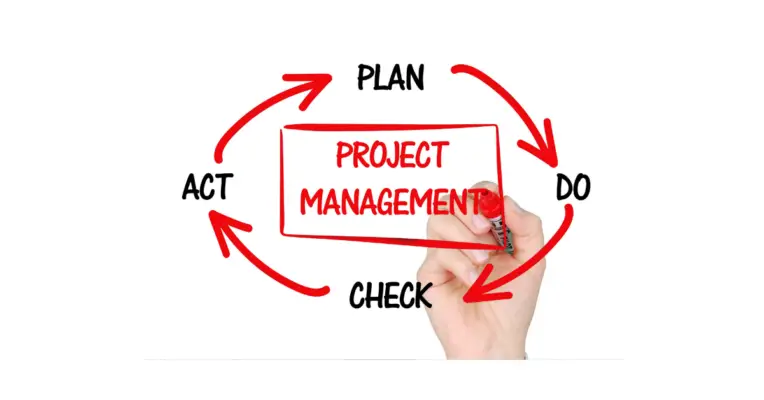Legal project management jobs involve overseeing and managing legal projects from start to finish. This includes planning and organizing project timelines, setting goals and objectives, allocating resources, and monitoring progress.
Legal project managers work closely with lawyers and legal teams to ensure that projects are completed efficiently and effectively within budget and time constraints.
They may also coordinate with clients, conduct risk assessments, and implement strategies to mitigate potential issues or delays.
Additionally, legal project managers may be involved in developing and implementing project management methodologies and best practices within law firms or legal departments.
Legal project management jobs require strong organizational, communication, and problem-solving skills and a solid understanding of legal processes and procedures.
Legal project management jobs require professionals who possess a unique combination of legal expertise and project management skills.
These individuals oversee and coordinate various legal projects, ensure efficiency, and meet deadlines.
They must have a thorough understanding of legal processes and be able to communicate and collaborate with legal teams and clients effectively.
This article explores the definition, qualifications, responsibilities, and challenges of legal project management roles in today’s dynamic legal industry.
Definition of Legal Project Management
Legal Project Management is a strategic approach to managing legal projects to increase efficiency, reduce costs, and improve client satisfaction.
It involves planning, organizing, and controlling the resources and activities required to execute legal projects successfully.
Legal Project Managers oversee all aspects of a project, from defining objectives and creating timelines to managing budgets and coordinating team members.

Overview of the Job Role
The job role of a legal project manager involves overseeing and coordinating various aspects of legal projects to ensure efficiency and successful outcomes.
This position requires a candidate with a strong background in project management and a deep understanding of the legal industry.
A legal project manager is responsible for planning, organizing, and executing legal projects while managing resources, budgets, and timelines.
They must have excellent communication and leadership skills to collaborate effectively with legal teams, clients, and stakeholders.
Additionally, a legal project manager should have a degree in law or a related field and experience in legal practice.
Their knowledge of project management principles and tools is crucial for delivering high-quality legal services within specified parameters.
Below is an emotional response-evoking table highlighting the key skills and experience required for a legal project manager job:
| Skills | Experience | Projects | Degree |
|---|---|---|---|
| Project management | 3+ years | Legal projects | Law or related field |
| Communication | 5+ years | Legal practice | |
| Leadership | 2+ years | Budget management | |
| Collaboration | 4+ years | Timeline management |
Qualifications
When it comes to legal project management roles, there are certain qualifications that employers often look for in candidates. These qualifications include:
- Specific education requirements.
- A particular skill is necessary for the role.
- Relevant experience in the field.
Additionally, preferred qualifications and certifications may be considered assets for those seeking such positions.
Education Requirements
Education requirements for legal project management jobs typically include a bachelor’s degree in business, management, or a related field.
However, some positions may require an advanced degree or certification in legal project management.
The ideal candidate for a legal project management role should possess relevant experience in the legal services industry and strong communication skills to effectively interact with clients, stakeholders, and the project team.
Qualified applicants should also demonstrate a solid understanding of project management principles and methodologies and the ability to manage budgets, deadlines, and resources.
Practical experience and a proven successful project management track record are equally valuable as an advanced degree or certification in this field.
Seeking legal career advice and networking with professionals in the field can provide valuable insights and opportunities for aspiring legal project managers.
Skillset Necessary for the Role
Relevant experience in the legal services industry, strong communication skills and a solid understanding of project management principles, are essential for success in a legal project management role.
Legal project management jobs require individuals with a unique skillset to navigate legal projects’ complexities.
In addition to possessing legal expertise, legal project managers must be able to develop and manage project schedules, ensuring that all tasks are completed in a timely manner.
They play a crucial role in overseeing complex projects from initiation to completion, ensuring that project milestones are met and that the project is delivered within the specified timeframe.
Moreover, legal project managers need technical project knowledge, as they may be required to oversee the technical design and implementation of project management software or task management features specific to the legal industry.
Relevant Experience Needed
To excel in legal project management jobs, relevant experience is crucial.
The successful candidate should possess a diverse skill set and a deep understanding of legal processes. Here are the key experiences needed for this role:
- Proficient knowledge of project plans: The candidate should have hands-on experience creating and managing plans specifically tailored for legal projects. This involves understanding the unique requirements and timelines of legal matters.
- Collaboration with the legal team: The ability to work closely with the legal team is essential. This includes coordinating with attorneys, paralegals, and other stakeholders to ensure smooth project execution and delivery of legal advice.
- Handling special projects: Experience managing special projects, such as mergers and acquisitions or regulatory compliance initiatives, is highly valued. This demonstrates the candidate’s ability to navigate complex legal matters effectively.
Moreover, strong analytical skills and a background as a senior project manager in development can greatly enhance the candidate’s chances of success in legal project management roles.

Preferred Qualifications and Certifications
The ideal candidate for legal project management roles should possess preferred qualifications and certifications that demonstrate their expertise in the field.
Legal project management jobs require individuals with advanced knowledge of legal practice and considerable knowledge of project management principles.
Preferred qualifications for these roles often include a PMP certification, which showcases the candidate’s proficiency in project management methodologies and best practices.
An agile certification can also be beneficial, as it demonstrates the candidate’s ability to adapt and respond to changing project requirements and timelines.
These certifications enhance the candidate’s credibility and marketability and potentially increase their legal salaries.
Employers value candidates with these qualifications as they can effectively manage projects within the practice management department, ensuring successful outcomes for the legal practice.
Responsibilities and Duties
Responsibilities and duties in legal project management encompass a wide range of tasks and obligations. These include:
- Regular tasks and assignments, such as project planning and scheduling.
- Handling special projects or complex projects that require extensive expertise.
Additionally, legal project managers are responsible for:
- Communicating with clients to understand their experiences.
- Providing clients with legal advice when necessary.
These responsibilities and duties are crucial for ensuring the successful management and execution of legal projects.
Regular Tasks and Assignments
In legal project management jobs, regular tasks and assignments often involve coordinating team meetings, analyzing data, and providing progress updates to stakeholders.
These tasks are crucial for the smooth execution of legal projects and require the expertise of a legal assistant or project manager.
Some of the common regular tasks and assignments in legal project management jobs include:
- Assisting in business development activities such as client meetings and proposal writing.
- Collaborating with cross-functional project teams to ensure effective communication and coordination.
- Conducted pricing analysis and developed project budgets to meet client requirements.
Moreover, legal project management jobs also involve implementing and managing legal processes to ensure efficiency and mitigate potential project risks.
Legal project managers contribute to successfully executing legal projects by efficiently handling regular tasks and assignments.
Special Projects or Complex Projects
Special or complex projects require the expertise of a skilled professional who can effectively navigate challenges and ensure successful outcomes.
In legal project management jobs, professionals are often tasked with managing special projects that go beyond regular tasks and assignments.
These projects may involve ad-hoc cross-departmental collaborations, pricing legal project management services, or handling complex cases that require a deep understanding of civil procedure.
The role of a legal project manager in such projects is crucial as they need to coordinate different stakeholders, develop project plans, monitor progress, and mitigate risks.
Additionally, field observations may be necessary for projects that involve technical fields such as construction.
Legal project management jobs provide a fulfilling career path for legal professionals, offering competitive compensation and diverse, challenging projects.
Project Planning and Scheduling
Effective project planning and scheduling are essential for ensuring timely and efficient execution of complex tasks and assignments.
Proper planning and scheduling are even more crucial in the construction field, where projects can be large and intricate.
Here are some key aspects to consider in project planning and scheduling:
- Clearly defining project objectives and goals.
- Identifying and allocating necessary resources, such as manpower and equipment.
- Creating a detailed timeline with milestones and deadlines.
Construction companies can optimize their project management processes and achieve successful outcomes by following these procedures.
This benefits the company by ensuring timely completion and cost control and enhances the overall experience for applicants and employees.
Construction companies can attract top talent by offering competitive salaries and benefits and providing a structured and organized work environment through effective project planning and scheduling.
Additionally, applicants can gain valuable experience and placement opportunities through construction field observations and hands-on involvement in complex projects.
Communicating with Clients on Experiences
To ensure a smooth and satisfactory client experience, construction companies need to maintain open and transparent communication throughout the project.
They can provide excellent benefits and exceptional service and promptly address concerns or issues.
Effective communication helps understand client experiences and expectations, enabling the construction company to deliver a service that aligns with their needs.
Regular updates, progress reports, and clear communication channels are essential for keeping clients informed and engaged throughout the process.
Additionally, construction companies should offer a competitive salary range and provide advice and support to clients when needed.
Construction companies can establish a reputation for delivering exceptional service by prioritizing open communication with clients.
This, in turn, contributes to a positive company profile within their family of companies.
Providing Legal Advice to Clients
Construction companies must comprehensively know legal complexities when advising clients on projects.
This ensures the company can guide its clients through potential legal hurdles and protect their interests.
Here are some key aspects that construction companies need to consider when providing legal advice:
- Understanding and addressing issues related to gender identity and sexual orientation to ensure inclusivity and compliance with anti-discrimination laws.
- Design and medical device experience are incorporated into projects to meet safety standards and regulatory requirements.
- Utilizing a team with a bachelor’s degree in relevant fields to provide accurate accounting advice and financial management throughout the project.
Challenges in the Role
Several challenges need to be addressed in the role of a legal project manager.
One of the primary challenges is managing time efficiently for multiple projects.
Legal project managers must prioritize tasks and deadlines and implement time management strategies for project success.
Managing Time Efficiently for Multiple Projects
Managing time across multiple projects is crucial for success in legal project management roles.
In these positions, professionals are responsible for overseeing various tasks and ensuring that each project is completed on time and within budget.
To effectively manage time across multiple projects, legal project managers employ various strategies, including:
- Prioritizing tasks: By identifying the most critical and time-sensitive tasks, legal project managers can allocate their time and resources accordingly.
- Using project management tools: Utilizing tools such as project management software helps streamline workflows and keeps track of deadlines and progress.
- Delegating responsibilities: Assigning tasks to team members based on their strengths and expertise helps distribute workload and ensures efficient use of resources.
Frequently Asked Questions
What Are the Key Skills Required to Excel in a Legal Project Management Role?
To excel in a legal project management role, key skills include strong organizational abilities, effective communication, and attention to detail.
Problem-solving and the ability to manage multiple tasks simultaneously. These skills enable successful planning, execution, and completion of legal projects.
How Does Legal Project Management Differ From Traditional Project Management?
Legal project management differs from traditional project management in that it involves managing legal projects specifically, which often require a deeper understanding of legal processes, regulations, and considerations.
This specialized knowledge sets it apart from other industries.
What Are Some Common Software Tools Used in Legal Project Management?
Some common software tools used in legal project management include case management systems, document management systems, e-billing software, and project management platforms.
These tools help streamline workflows, track progress, and improve collaboration among legal professionals.
Can You Provide Examples of Successful Legal Project Management Initiatives?
Successful legal project management initiatives have been implemented across various law firms and departments.
These initiatives have resulted in improved efficiency, cost savings, and increased client satisfaction through effective planning, collaboration, and use of technology.
What Are Some Strategies for Effectively Managing Client Expectations in Legal Project Management?
Effectively managing client expectations in project management involves clear communication, setting realistic goals, and regular updates.
It is important to establish a strong relationship with clients, provide transparency, and manage any changes or issues that may arise.

Conclusion
Legal project management is a specialized field requiring individuals with a strong understanding of legal processes and project management principles.
The role involves coordinating and overseeing various aspects of legal projects to ensure successful outcomes.
However, legal project managers may encounter challenges such as balancing multiple tasks, managing client expectations, and adapting to changing legal requirements.
Legal project management jobs require a unique skill set and play a crucial role in efficiently delivering legal services.

Chris Ekai is a Risk Management expert with over 10 years of experience in the field. He has a Master’s(MSc) degree in Risk Management from University of Portsmouth and is a CPA and Finance professional. He currently works as a Content Manager at Risk Publishing, writing about Enterprise Risk Management, Business Continuity Management and Project Management.


